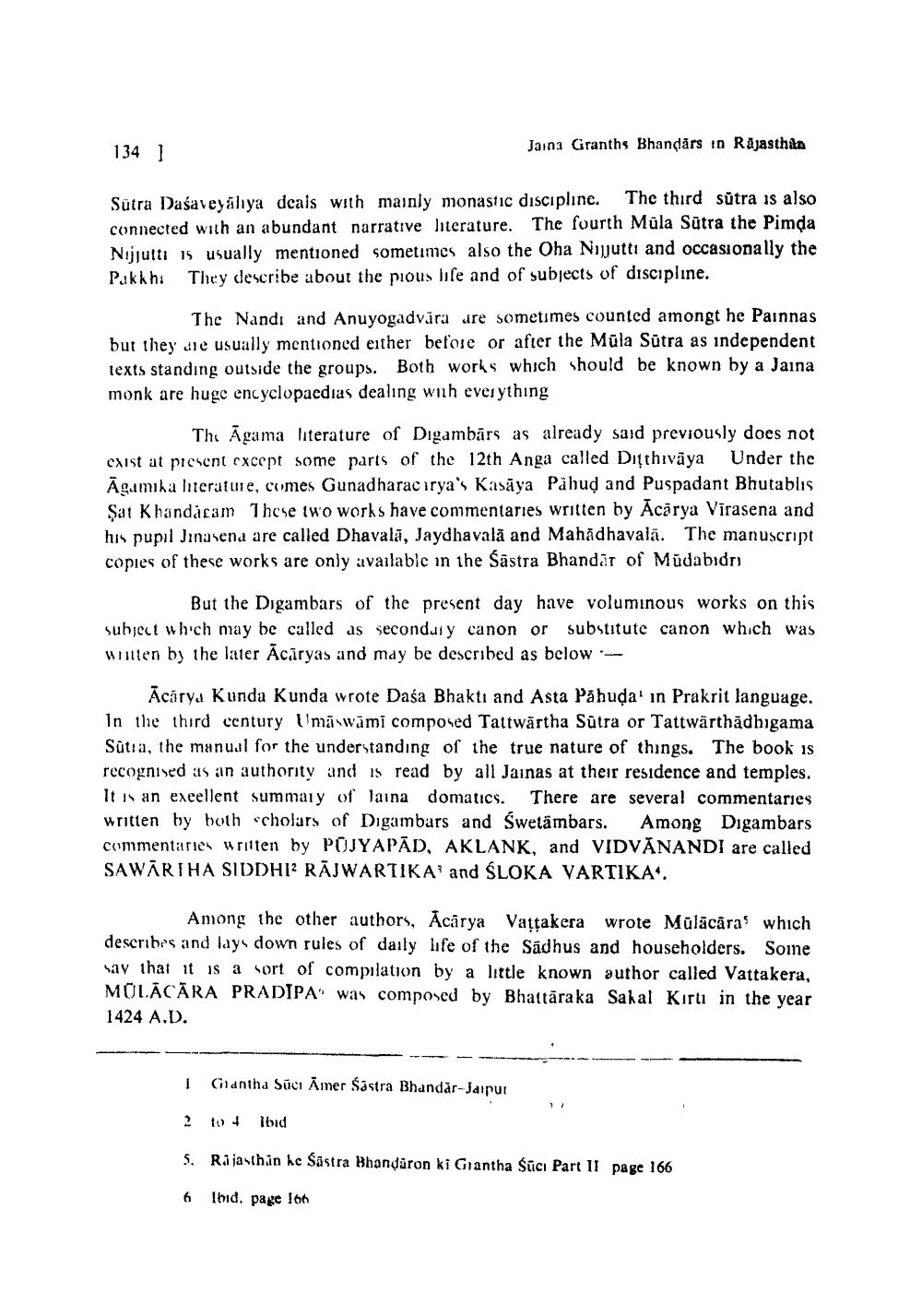________________
134 1
Jaina Granths Bhandārs in Rajasthan
Sutra Dasaveyalya deals with mainly monastic discipline. The third sutra is also connected with an abundant narrative literature. The fourth Mula Sätra the Pimda Nijjutti is usually mentioned sometimes also the Oha Nijutti and occasionally the Pakkh. They describe about the pious life and of subjects of discipline.
The Nandi and Anuyogadvāra wre sometimes counted amongt he Painnas but they dle usually mentioned either before or after the Müla Sūtra as independent texts standing outside the groups. Both works which should be known by a Jaina monk are huge encyclopaedias dealing with everything
Thi Agama literature of Digambārs as already said previously does not exist at present except some parts of the 12th Anga called Digthivāya Under the Āgumika literature, comes Gunadharacırya's Kasāya Pähud and Puspadant Bhutablis Şat Khandakam These two works have commentaries written by Acārya Virasena and his pupil Jinasena are called Dhavala, Jaydhavală and Mahādhavala. The manuscript copies of these works are only available in the Sāstra Bhandar of Mūdabidri
But the Digambars of the present day have voluminous works on this subicct which may be called as secondary canon or substitute canon which was wutten by the later Ācāryas and may be described as below
Ācārya Kunda Kunda wrote Daśa Bhakti and Asta Påhuda' in Prakrit language. In the third century Umāswami composed Tattwärtha Sutra or Tattwärthādhigama Sütia, the manual for the understanding of the true nature of things. The book is recognised as an authority and is read by all Jainas at their residence and temples. It is an excellent summary of Jaina domatics. There are several commentaries written by both scholars of Digambars and Swetämbars. Among Digambars commentaries written by POJYAPĀD, AKLANK, and VIDVĀNANDI are called SAWĀRTHA SIDDHIP RĀJWARTIKA and SLOKA VARTIKA.
Among the other authors, Ācārya Vattakera wrote Mülācāras which describes and lay down rules of daily life of the Sadhus and householders. Some say that it is a sort of compilation by a little known author called Vattakera, MOLĀCĀRA PRADIPA was composed by Bhattāraka Sakal Kirli in the year 1424 A.D.
| Gantha Suci Āmer Sastra Bhandar-Jaipur
2
to
ibid
5. Rajasthan he Šāstra Bhandaron ki Grantha Suci Part II page 166
6
Thid. page 166




